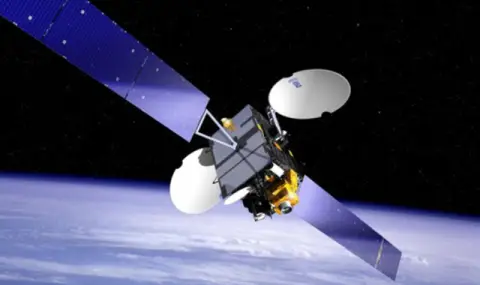Two years after the announcement of the “European Starlink” – the IRIS2 satellite network – the authorities of the European Union signed the first treaties for its creation. The cost of the project increased from €6 billion to €10 billion and this, it seems, is not the limit. The time of the expected start of the provision of satellite Internet services has also shifted from 2027 to the early 2030s. Efforts should make the EU independent of third countries in the field of space internet communications.
The European Parliament announced the IRIS2 project (Infrastructure for Resilience, Interconnectivity and Security via Satellites) in 2022. It took two years to award the first contracts to develop satellite platforms and infrastructure. This time was spent on disputes and the selection of contractors, and also revealed weaknesses in the original cost estimate of the project, which turned out to be a large underestimate. Even without starting, the project has risen in cost from €6 to €10 billion. Since the EU authorities are only willing to finance it until 2027, they will have to look for a new source of funds, which is almost guaranteed to make it more expensive more projects.
When the decision to build a sovereign satellite Internet in Europe was announced two years ago, the start of the service was expected in 2027. The delay in concluding contracts has led to the fact that the network will already be able to provide a full package of services after 2030, without specifying an exact date. However, the EU promises to start providing IRIS2 services for government services and the military in 2030.
The IRIS2 network will be built on a relatively small scale with only 290 satellites in orbit, a stark contrast to SpaceX's Starlink network, which has about 6,000 active satellites today. A number of voices in the EU countries express doubts about the need to create their own satellite communication network in the presence of the excellent Starlink network. But skeptics say that Elon Musk cannot be considered a reliable partner and Europe is better off not dealing with him.
The first contract for the creation of a European satellite Internet communication network was concluded with the Consortium of European satellite providers - SES SA, Eutelsat and Hispasat. The work can also be outsourced to other European companies. It is interesting to note that the IRIS2 satellites will also serve as navigation and Earth observation satellites. Their main task will be to provide broadband services in areas that are not covered by Internet services, both in Europe and in Africa.
